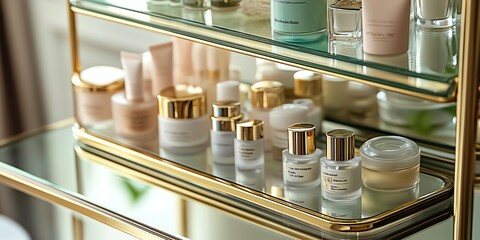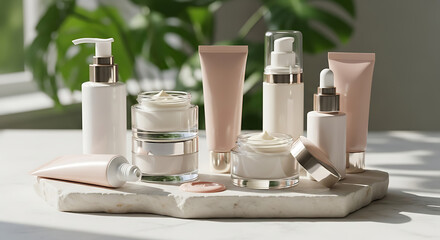Wondering if Luvizac is safe to use? This in-depth guide explores the skincare and supplement versions, their ingredients, benefits, possible side effects, expert opinions, and real-world safety insights.
Introduction
In today’s health and beauty industry, many consumers are cautious before adding new products to their routine. A common concern that arises is “is Luvizac safe to use?” This is a valid question because Luvizac is marketed in two very different categories: one as a skincare solution and another as an immune-boosting supplement.
With two distinct products under the same name, confusion is understandable. The skincare version focuses on topical application for hydration and complexion improvement, while the supplement version emphasizes internal immune support. Because both involve personal health, safety must be examined carefully.
This article provides a detailed, research-backed, and user-focused look at Luvizac. We will explore its ingredients, clinical studies, possible side effects, expert opinions, and user feedback to answer the key question: is Luvizac safe to use in your daily life?
Understanding Luvizac Two Different Products
Before evaluating safety, it is essential to distinguish the two categories of Luvizac products.
-
Luvizac Skincare Product – A topical formula designed to hydrate, brighten, and protect skin.
-
Luvizac Immune Supplement – A capsule or tablet formulated with vitamins, minerals, and plant extracts to support immune health.
Although they share the same brand name, their safety depends on different factors: dermatological tolerance for skincare and nutritional balance for supplements.
Luvizac Skincare Safety Profile
Key Ingredients
The skincare version of Luvizac commonly includes:
-
Niacinamide – Known for brightening skin tone, reducing redness, and regulating oil production.
-
Hyaluronic Acid – A powerful hydrator that helps retain moisture in the skin.
-
Green Tea Extract – Packed with antioxidants, it soothes irritation and combats environmental stress.
-
Aloe Vera – Provides a cooling effect and calms inflammation.
These are widely studied dermatological ingredients, considered low-risk and effective for most skin types.
Dermatological Safety Evidence
-
Niacinamide has been shown in clinical studies to be well-tolerated even in sensitive skin, with benefits in acne reduction and anti-aging.
-
Hyaluronic Acid is a naturally occurring molecule in the body, making it highly compatible with skin and rarely irritating.
-
Green Tea Extract reduces oxidative stress, lowering chances of skin sensitivity caused by pollution and UV exposure.
-
Aloe Vera has centuries of use in skincare with a strong record of safety.
Possible Side Effects
While generally safe, some risks exist:
-
Mild redness in people with extremely reactive skin.
-
Rare allergic reactions to plant-based extracts.
-
Irritation if combined with harsh products like high-strength retinoids.
For most users, the skincare version of Luvizac is safe to use daily. A patch test is recommended for people with sensitive skin conditions such as eczema or rosacea.

Luvizac Immune Supplement
Key Ingredients
The supplement version of Luvizac often contains:
-
Vitamin C – Strengthens immune defense and reduces oxidative stress.
-
Zinc – Essential for immune cell function and wound healing.
-
Elderberry Extract – Traditionally used to fight colds and flu.
-
Echinacea – Supports immune system activity.
-
Probiotics – Enhance gut health, which is linked to overall immunity.
Scientific Support for Ingredients
-
Vitamin C and Zinc – Supported by decades of clinical research showing safe, effective immune benefits.
-
Elderberry – Studies show it may shorten cold duration, though evidence is mixed.
-
Echinacea – Shows some effectiveness in reducing infection length, but not all studies agree.
-
Probiotics – Extensively proven to be safe for digestive and immune health.
Possible Side Effects
-
High Vitamin C intake can cause digestive upset (nausea, diarrhea).
-
Excess Zinc may lead to nausea and long-term imbalance in copper absorption.
-
Echinacea may cause allergic reactions in some users.
-
Probiotics may cause bloating in sensitive digestive systems.
Who Should Be Cautious
-
Pregnant and breastfeeding women should consult a doctor.
-
People with autoimmune diseases or taking immunosuppressants should avoid unsupervised use.
-
Individuals with known allergies should check labels carefully.
Final Verdict on Supplement Version
For healthy adults, the Luvizac immune supplement is safe to use at recommended dosages. Long-term or high-dose use should be monitored by a healthcare provider.
Expert Opinions on Luvizac Safety
-
Dermatologists emphasize that the skincare version is formulated with gentle, proven ingredients and is safe for long-term use.
-
Nutritionists recommend the supplement version in moderation but stress that supplements should not replace a healthy diet.
-
Medical professionals advise caution for people with chronic illnesses, allergies, or those who are pregnant.
Real-World User Experiences
Feedback from consumers further helps answer the question: is Luvizac safe to use?
-
Skincare Users: Most report smoother, hydrated skin and reduced redness. Occasional reports of mild irritation exist but are rare.
-
Supplement Users: Many users note fewer colds and stronger immunity. A few mention mild digestive upset when taken without food.
Practical Tips for Safe Use
For Skincare Version
-
Perform a patch test before applying to your face.
-
Avoid mixing with strong exfoliants or retinoids.
-
Apply sunscreen daily, as antioxidants work best with UV protection.
For Supplement Version
-
Follow dosage instructions carefully.
-
Take supplements with meals to reduce stomach upset.
-
Do not exceed daily limits for Vitamin C or Zinc.
-
Seek medical advice if you have underlying conditions.

Conclusion
After reviewing the evidence, the answer is clear Luvizac is safe to use in both its skincare and supplement forms when used responsibly.
The skincare version is formulated with widely trusted, dermatologist-recommended ingredients like niacinamide and hyaluronic acid, making it suitable for sensitive skin. The supplement version provides immune support with Vitamin C, Zinc, and natural extracts, but should be taken at recommended doses to avoid side effects.
For individuals with special health conditions, allergies, or pregnancy, consulting a healthcare provider is strongly advised. Ultimately, the safety of Luvizac depends not just on the product but on how carefully and responsibly you use it.
FAQs
1. Is Luvizac safe to use on sensitive skin?
Yes, the skincare product is designed to be gentle, but sensitive skin users should patch test first.
2. Can children take the Luvizac supplement?
The supplement is intended for adults. Consult a pediatrician before giving it to children.
3. Are there long-term side effects of Luvizac supplements?
Not at recommended dosages, but excessive Vitamin C or Zinc intake may cause long-term health issues.
4. Can Luvizac supplements replace a balanced diet?
No. Supplements should complement a healthy diet, not substitute one.
5. Is Luvizac safe to use during pregnancy?
Both versions should be used cautiously during pregnancy. Always seek medical advice first.


